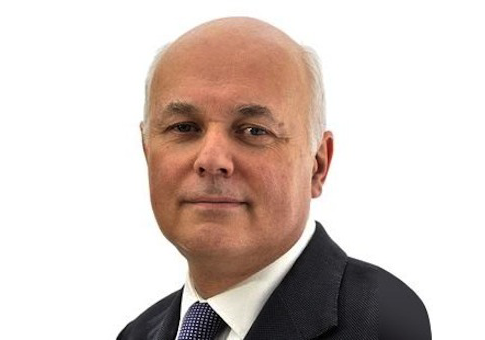The United Kingdom’s top welfare official hailed his country’s conservative welfare reforms and challenged the Republican Party in America to apply similar policy priorities in a speech at the Heritage Foundation Monday afternoon.
Iain Duncan Smith, a member of parliament and secretary of state for work and pensions, discussed the work of his Centre for Social Justice and his reform efforts in the British government’s cabinet during the hour-long event.
Smith, who led the Conservative Party for two years in the early 2000s, focused his remarks on the culture of dependency that the country’s welfare system fostered.
"The simple truth is that we cannot be prepared to see a growing number of our fellow citizens falling into an underclass of hopelessness and despair," Smith said.
Dependency on the government characterizes certain communities in Britain with high poverty and low life expectancy, Smith argued. He cited one neighborhood he knew that had a life expectancy of only 54 years, while another only a few miles away in the same city had a life expectancy of over 80 years.
Smith’s work has focused on the manifold factors that lead to poverty.
"I set up the Centre for Social Justice to challenge the accepted wisdom of the left that poverty is only about money and that more state money can somehow improve it," he said. Smith blamed poverty on five primary factors: debt, family breakdown, addiction, failed education, and worklessness.
The Centre also had another purpose: "It was to show that conservatives cared about people trapped in dependency," Smith said.
Conservatives have a strong tradition of helping the "working poor," Smith argued, reaching back to men like William Wilberforce. But too often conservatives have forgotten about this tradition.
Too often conservatives trace their identity to the public policy achievements of their successful ancestors: former Prime Minister Margaret Thatcher for British Conservatives and former President Ronald Reagan for Republicans.
Instead of simply trying to replicate the policies implemented by great conservative leaders, Smith argued, conservatives today should try to apply the conservative principles embodied by these leaders—emphasizing the value of liberty, personal responsibility, and family—to solve current problems.
Smith heavily emphasized the value of marriage and accountability in his remarks.
The structure of Britain’s welfare penalized people for staying married, and as a result traditional marriage and intact families have almost ceased to exist in the bottom two deciles of British society, Smith said. Nevertheless, marriage promotes stability and the academic growth of children, Smith said.
The British government has also instituted accountability measures in its welfare system. Unemployed people have to look for a job actively while receiving welfare benefits or risk losing them, Smith said, in order to encourage welfare recipients to get a job. The result has been more people with jobs than ever before, Smith said.
Tying welfare benefits to accountability measures is one area Republicans should explore, Smith said.
The British government is also reforming its social services system in other ways, such as paying organizations like drug treatment centers based on their success, not their efforts, and social bonds that encourage individuals to invest in social programs.
